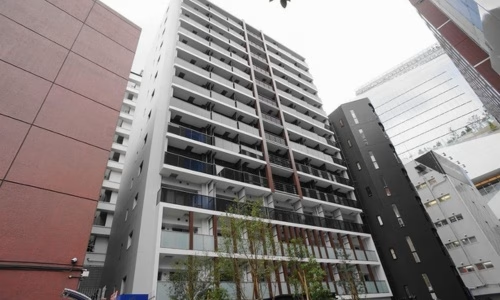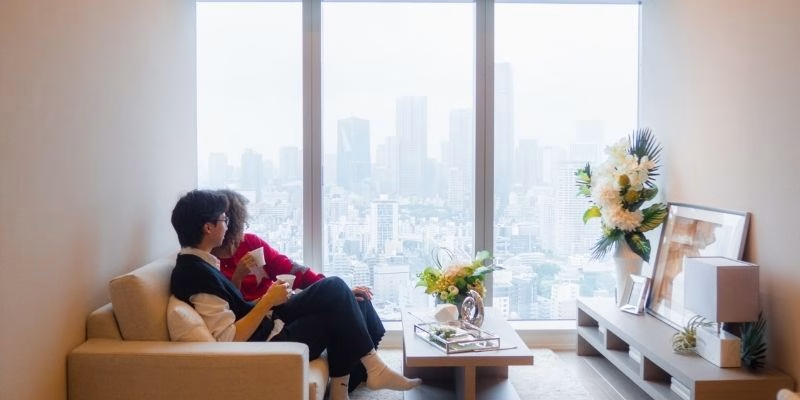Shibuya is one of Tokyo’s most energetic areas, great for expats, creatives, and young professionals. It offers quick access to trains, stylish apartments, and endless things to do. Rent usually starts at ¥200,000 per month, so a yearly income of ¥6 million makes living here more comfortable. If you want more space or a quieter setting, nearby places like Setagaya or Shinagawa are worth a look. With the right budget, Shibuya delivers exciting, city-centered living in Tokyo.
Why Shibuya Offers the Ultimate Tokyo Lifestyle
Shibuya is more than its famous scramble crossing, it’s the heart of Tokyo’s youth culture, tech scene, and creative energy. From fashion and nightlife to startup hubs and stylish cafés, this district attracts people from around the world chasing inspiration and opportunity.
Living here isn’t just about convenience, it’s a lifestyle. You get unbeatable access to transport, entertainment, and the nonstop buzz of city life. Tokyo average income
So what does it take to call Shibuya home? This guide covers everything, from rent prices and apartment types to income tips and nearby alternatives like Setagaya or Shinagawa, helping you make the right move in Tokyo’s most exciting neighborhood.

Live Boldly in Central Tokyo
Why Choose Shibuya?
Shibuya remains one of Tokyo’s top choices for expats, creatives, and professionals who want to live at the heart of the city. With excellent train access via JR Yamanote, Tokyo Metro Ginza, Fukutoshin and Hanzomon lines, it is incredibly convenient for commuting, working or exploring the capital.
Beyond transportation, Shibuya offers a unique lifestyle filled with international food, boutique shops, entertainment venues and nightlife that never sleeps. It is a place where creativity and modern living blend perfectly.
Apartments here are typically new or recently renovated, with smart layouts and features like secure entry, elevators and organized waste systems. Whether you are renting a compact 1K or a spacious 2LDK, you will enjoy both comfort and functionality.
Shibuya also stands out for its dynamic global community. It is welcoming to foreigners and perfect for anyone looking to live in a place full of energy, inspiration and connection.
If your ideal Tokyo apartment rental is close to everything and rich in lifestyle perks, Shibuya is one of the best places to call home.

Modern Living in Central Tokyo
Types of Apartments Available in Shibuya
Before committing to a Tokyo apartment rental, it’s essential to understand the different layouts available, especially if you’re planning to live in a Shibuya apartment. Here’s a quick guide to the most common apartment types you’ll encounter:
- 1R / 1K / 1DK: Ideal for singles, these small units are affordable and easy to maintain. 1R is one open space, while 1K and 1DK have a separate kitchen or dining area.
- 1LDK / 2LDK: Perfect for couples or small families. A 1LDK offers separate living, dining, and kitchen spaces. A 2LDK adds an extra bedroom, great for kids or a home office.
- Luxury Apartments: Found in areas like Daikanyama and Ebisu, these high-end rentals feature gyms, concierge services, and top-notch security. Ideal for expats and professionals.
- Unfurnished Rentals: Most Tokyo apartments don’t come with furniture, which lowers rent. Be prepared to furnish the space yourself if staying long-term.
- Shared Apartments: Popular with young people and foreigners, these provide private rooms with shared kitchens and lounges. Affordable and social, available in nearby areas like Hatagaya.
Average Rent Prices in Shibuya (2025)
Shibuya consistently ranks as one of the most expensive neighborhoods in Tokyo when it comes to renting. The area’s central location, modern housing stock, and energetic lifestyle all contribute to premium pricing. Here’s a look at the average rental rates for various apartment types:
- 1K Apartments: Expect to pay between ¥130,000 and ¥180,000/month for a compact, single-person Shibuya apartment rental, ideal for students or solo professionals.
- 1LDK / Apartments: Suitable for couples or small families, these layouts typically range from ¥200,000 to ¥350,000/month, depending on location, amenities, and building age.
- Luxury Apartments: If you’re looking for a high-end Tokyo apartment rental, luxury units near Shibuya Crossing, Daikanyama, or Ebisu start around ¥400,000/month and can climb significantly higher for top-tier properties.
While these prices may seem steep, many renters are drawn to the convenience, trendsetting atmosphere, and modern infrastructure that Shibuya offers. However, for the same monthly rent, you could find larger floor plans with more greenery in nearby districts like Setagaya or Shinagawa Seaside.
Costs Beyond Rent You Should Budget For
When renting an apartment in Japan, particularly as a foreigner, it’s important to be aware of several upfront costs beyond just the monthly rent. One of the first things to budget for is the security deposit, known as shikikin, which typically amounts to one or two months’ rent and may be partially refunded when you move out, depending on the condition of the property.
You’ll also likely encounter key money (reikin), a traditional, non-refundable payment made as a gesture of appreciation to the landlord, usually equivalent to one month’s rent. In addition, most agencies charge a commission fee, often equal to one month’s rent, for their services in helping you secure the apartment.
On top of that, you’ll need to sign up for renter’s insurance, and in many cases, go through a guarantor company, especially if you don’t have a personal guarantor in Japan. These extra steps and costs can catch newcomers off guard, but being prepared for them will make the rental process far smoother, particularly in competitive markets like Tokyo.
Income Requirements for Living Comfortably in Shibuya
Thinking about renting an apartment in Shibuya? Make sure your income matches the area’s high cost of living. Here’s what you need to know:
- Shibuya is one of Tokyo’s most premium neighborhoods, with rental rates that reflect its central location, lifestyle offerings, and modern infrastructure.
- Tokyo average income (2025): Typically ranges from ¥6 million to ¥6.8 million per year, reflecting higher salaries in the capital compared to other parts of Japan.
- Japan’s national average salary: Falls between ¥4.5 million and ¥5.5 million annually, depending on the region and industry.
- What’s considered a good salary in Japan: Earning between ¥7 million and ¥9 million per year allows for a comfortable life in central Tokyo, including Shibuya.
- Upper-middle-class income level: Annual earnings of ¥10 million or more provide access to larger or luxury apartments and greater lifestyle flexibility.
- Renting rule of thumb in Japan: You should spend no more than 30% of your net monthly income on rent. This helps maintain a healthy balance between housing costs and overall living expenses.
- If your monthly take-home pay is under ¥500,000: Consider exploring more budget-friendly areas like Setagaya, Meguro, or Kichijoji, where you can find spacious apartments and a quieter lifestyle without compromising on quality.
Pros & Cons of Renting in Shibuya
Choosing to live in Shibuya comes with a mix of exciting advantages and practical challenges. As one of the most sought-after areas in Tokyo, it’s perfect for those who thrive in a fast-paced, connected environment, but it may not be ideal for every lifestyle or budget. Let’s take a closer look at the benefits and drawbacks of renting a Shibuya apartment.
Pros:
- Prime Location with Unrivaled Access: Few places in Tokyo can match Shibuya’s connectivity. Whether commuting, socializing, or exploring the city, living here means everything is just a short train ride away.
- Wide Selection of Modern Housing Options: From compact studios to stylish luxury apartments, Shibuya offers a diverse range of rental properties to suit different preferences, making it a top choice for both locals and expats.
- Lively and Culturally Rich Neighborhood: The area is bursting with nightlife, creative spaces, international cuisine, and artistic energy. If you enjoy a dynamic urban lifestyle, Shibuya delivers it in full.
Cons:
- Premium Rent Prices: Rental costs in Shibuya are among the highest in the city, often exceeding what’s affordable based on Tokyo’s median household income.
- Limited Living Space: Many apartments, especially near the station, are compact, typically between 25 to 40 square meters, requiring renters to prioritize functionality and efficient use of space.
- High Demand and Fast Turnover: Desirable listings go quickly, so renters need to act fast and be well-prepared. The competition for modern, well-located units is intense, especially during peak moving seasons.
Top Areas to Live in Shibuya Ward
Shibuya isn’t just one place. It’s a dynamic mosaic of neighborhoods, each with its own unique charm and lifestyle. Whether you’re drawn to high-energy urban life or quiet residential streets, there’s a corner of Shibuya that fits your vibe.
- Shibuya Station Area: The heart of it all, fast-paced, lively, and ideal for commuters, nightlife enthusiasts, and those who thrive in the buzz of city life.
- Ebisu: Stylish yet serene, this area strikes a balance between trendiness and comfort, making it popular among young professionals and expats.
- Daikanyama: A chic, upscale enclave with European-inspired cafés, boutiques, and leafy streets, perfect for those seeking a laid-back but sophisticated atmosphere.
- Yoyogi / Harajuku: A creative and youthful area known for street fashion, independent art, and its proximity to Yoyogi Park and Meiji Shrine.
- Hatagaya / Sangubashi: These lesser-known residential pockets offer more affordable rents while maintaining excellent access to central Tokyo, ideal for those seeking value without sacrificing convenience.
- Nearby Shinagawa: Though technically outside Shibuya Ward, Shinagawa offers quick access via the Yamanote Line and is a smart option for those commuting across the city.
No matter your lifestyle or budget, Shibuya’s diverse neighborhoods offer something for everyone.
Tips for Apartment Hunting in Shibuya
Shibuya’s rental market moves fast, so being prepared is key. Start your search in March or September, these peak seasons offer more listings, but units go quickly.
Use English-friendly sites, bilingual agents, or expat groups to find reliable options. When viewing apartments, check for natural light, noise, building age, and internet setup, small details that make a big difference in daily life.
Have your documents ready: residence card, proof of income, and a local emergency contact are usually required. If you’re considering buying, Shibuya is also a strong long-term investment, with central condos starting around ¥80 million.

Smart Tips for Shibuya Living
Renting in Tokyo: Key Legal Notes
If you’re new to renting in Tokyo, or moving from abroad, knowing how the process works can save you time and stress. With the right prep, you can find a great place in Shibuya, one of the city’s most exciting neighborhoods.
- Lease Terms: Most rental contracts last two years and can be renewed. Just check ahead for any renewal fees or conditions.
- Language Barriers: Contracts are usually in Japanese. Luckily, more agencies now offer English support or translated versions to help international tenants.
- Guarantor Rules: Landlords usually ask for a guarantor. If you don’t have one, a guarantor company (保証会社) can step in for a small fee.
- Foreign-Friendly Apartments: More buildings in central areas like Shibuya now welcome foreign renters. Some even skip strict requirements and provide bilingual support.
Understanding these basics helps make your apartment search smoother and prepares you for a successful start in Tokyo.
Everyday Life in Shibuya
Living in Shibuya puts you right in the heart of Tokyo’s nonstop action. From 24-hour supermarkets and well-stocked pharmacies to coworking hubs and modern gyms, everything you need is within walking distance. The area buzzes with nightlife: bars, izakayas, movie theaters, and late-night ramen spots keep the energy going well past midnight.
For moments of peace, you’re never far from nature and culture. Yoyogi Park, Meiji Shrine, and seasonal festivals offer a refreshing contrast to the urban pace. Families and professionals alike benefit from proximity to international schools, top universities, and a wide range of expat services.
While apartments may be compact, the vibrant atmosphere, unbeatable convenience, and wealth of amenities make Shibuya an exciting and fulfilling place to call home.
Conclusion
If you love city energy and want to live at the heart of Tokyo’s excitement, Shibuya is a great fit. Just make sure your budget can keep up, earning at least ¥6 million per year is ideal. Need more room, green spaces, or lower rent? Check out nearby areas like Setagaya, Shinagawa, or other Tokyo suburbs for a more relaxed and spacious lifestyle.






Leave a Reply